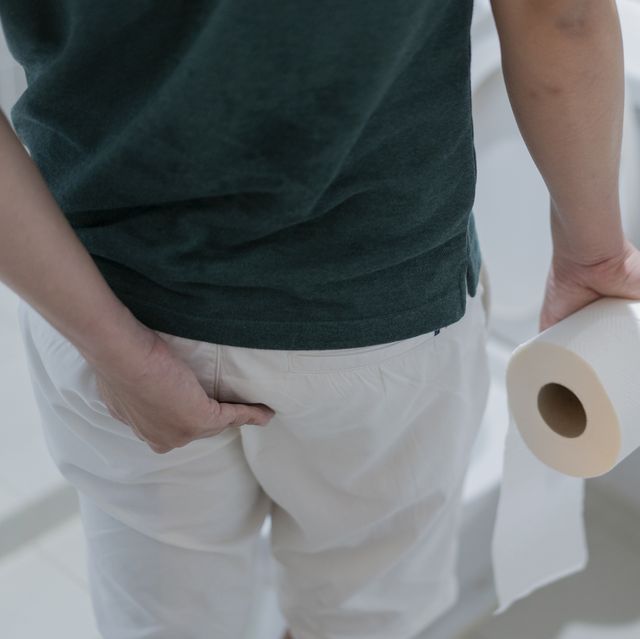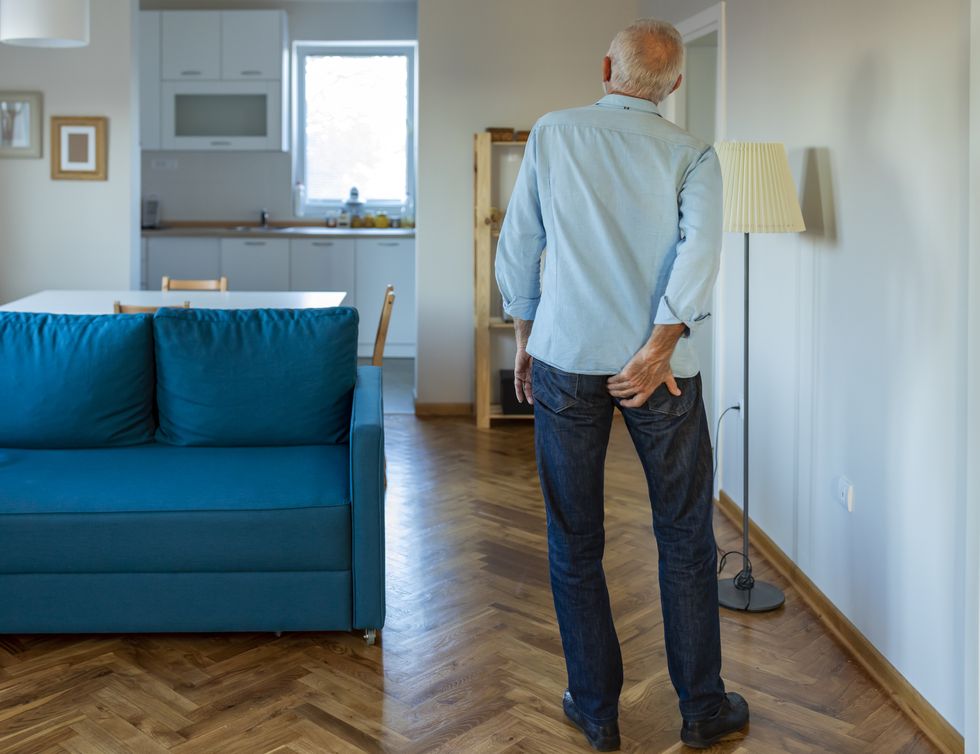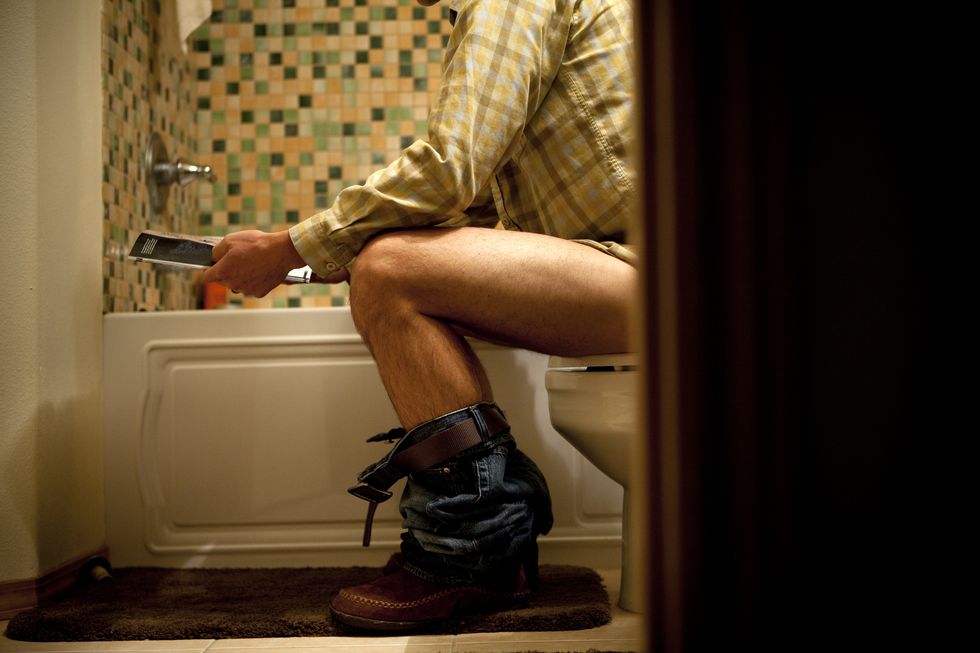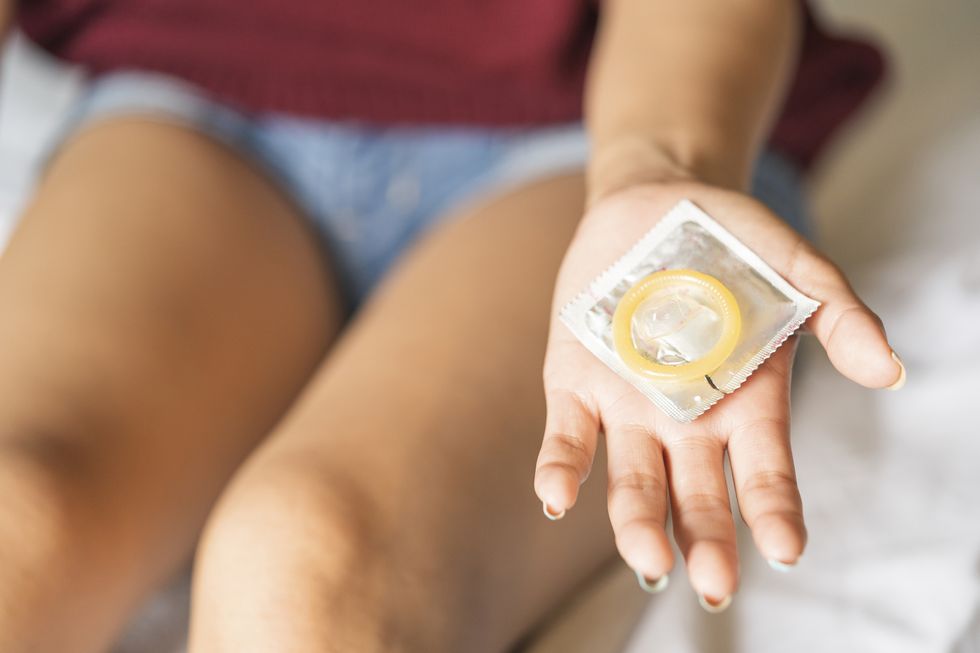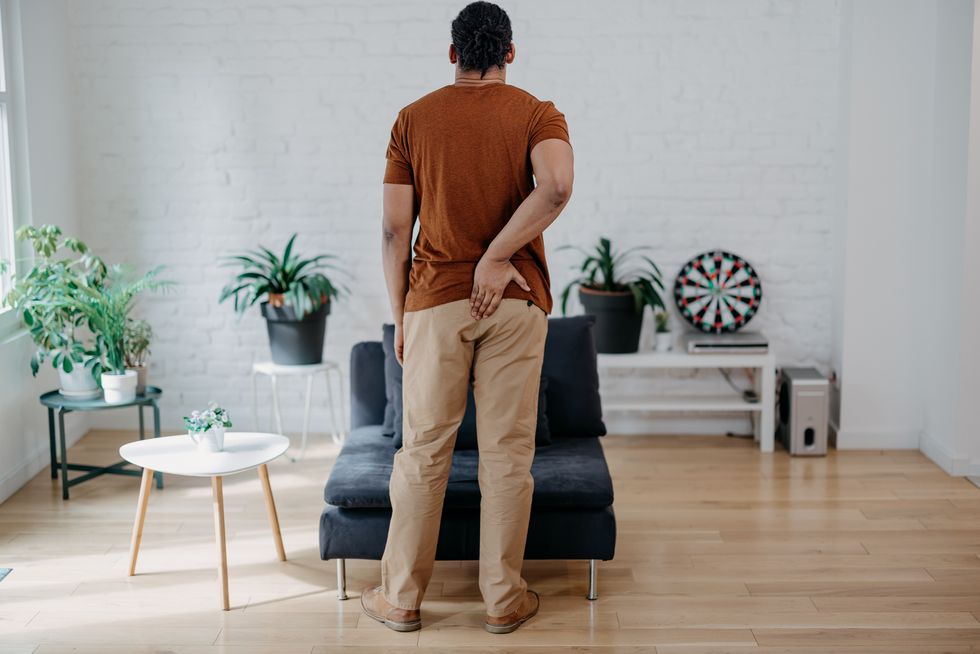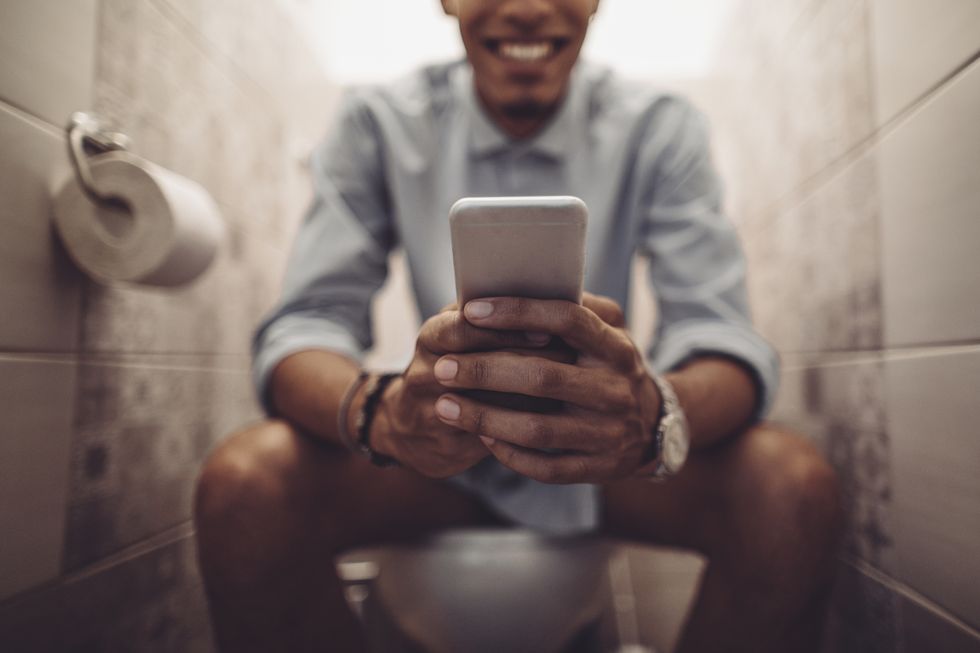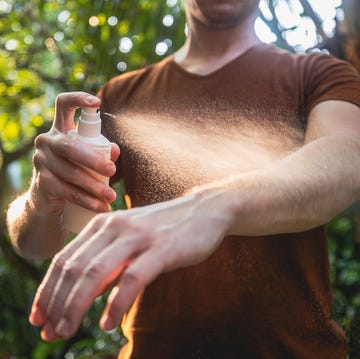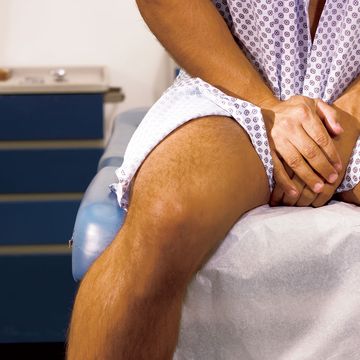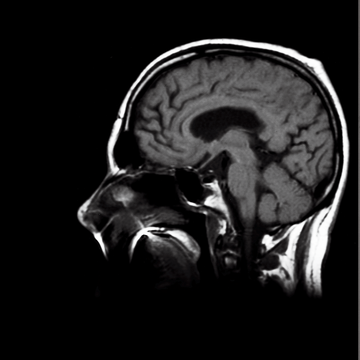HAVING AN ITCHY butt can be incredibly uncomfortable and embarrassing. It may leave you squirming in your seat to discreetly soothe the itch. But sooner or later, you’ll probably need to see your doctor to get to the, uh, bottom of what’s causing it.
Anal itching is actually quite common, says Mitchell Bernstein, M.D., an associate professor of surgery and director in the division of colon and rectal surgery at New York University Langone Health.
“Some people even start scratching in their sleep, and of course, too much scratching just makes it worse,” he says.
Anal itching is technically known as pruritis ani, explains Kenneth Josovitz, M.D., M.P.H., a gastroenterologist at Gastro Health in Woodbridge, Virginia. “It’s caused by underlying medical conditions in 75 percent of cases.”
These include infections, anorectal disorders, sexually transmitted infections, or skin conditions, he says. In other instances, you could have trauma to your anus, such as from wiping after a bowel movement.
An itchy anus can happen at any age, but you might notice it occurring more and getting worse as you get older, especially after you reach 40.
If you find yourself dealing with an itchy butthole, you probably hope it’ll go away on its own—and, it might sometimes. But, usually, you need some help from a doctor, depending on what’s causing it. Here are some potential causes of anal itching, how to treat it, prevention tips, and when you really need to call your doctor to get some relief.
What is anal itching?
The term pruritis ani actually means "itchy anus" in Latin. While everyone may have an itchy butt at some point in their lives, men are more likely to get it.
The symptoms are somewhat obvious: you have an uncontrollable itch on your anus, and scratching doesn’t provide much relief, according to the Cleveland Clinic. But, you might also feel burning, irritation, or soreness, or have thick, leathery skin around your anus.
There are two types of pruritus ani, as well. The most common is primary pruritis ani, which has no obvious cause. Secondary pruritis ani can be caused by a condition like hemorrhoids, anal fissures, bacterial infections, or something else.
What causes anal itching?
Doctors say many things can cause anal itching. Here are some of the most common factors:
1. You're Not Wiping Enough
Even though you’ve been wiping your butt after using the bathroom most of your life, you could be leaving behind flecks of poop. And, that may make your anus itchy.
“Not wiping enough leaves residual excrement in a place that already does not get much sun or air, and also retains moisture,” explains Evan Goldstein, D.O., of Bespoke Surgical in New York City. “Plus, stools are laden with bacteria—and, you can imagine how it can fester, causing the symptoms of an itchy butt and beyond.”
If there's poop hanging around in your crack, get in the shower and wash your butt with gentle soap.
2. You're Wiping Too Much
While wiping enough is crucial to getting rid of residual poop, you don’t want to overdo it. Over-wiping can cause an itchy anus, too.
It comes down to friction, Dr. Goldstein explains. “The more we wipe, the more friction there is. The harder we wipe, the more friction there is. The rougher the toilet paper we use, the more friction there is. All this friction causes irritation, microtears, and, yes, a potentially itchy butt.”
Toilet paper also crumbles easily and can leave bits trapped in the anal skin, which can be irritating as well, he says.
If wiping is generally a struggle, consider getting a bidet, which might be gentler than toilet paper.
3. STIs
Sexually transmitted infections, particularly herpes, gonorrhea, and chlamydia, can cause itching, according to Ehsan Ali, M.D., a primary care physician in Beverly Hills, California.
These STIs are fairly common, especially for people who engage in anal sex without condoms, Dr. Ali says.
They cause inflammation in the rectal area, and that can prompt itching. With herpes or HPV, warts may also appear, which can cause further burning and an itchy butt. The conditions may also prompt discharge, penile and testicular pain, and a rash.
If you suspect STIs might be the culprit, get tested. A medical pro can treat the issue right away, and that can usually clear up the symptoms and stop the itch.
4. Eczema
Eczema is a skin condition characterized by a red, scaly rash that can come with a really persistent itch—and, it can occur anywhere on the body.
The exact cause of eczema is unknown, but it has been linked to an overactive response by the immune system and can be triggered by allergies or asthma, says Alan Parks, M.D., dermatologist and founder of DermWarehouse.
The condition can also crop up with external factors like changes in weather or exposure to household products like soap or detergent. Stress can also be a factor and worsen the problem. When you get tense, your body issues a protective response by increasing inflammation.
Dr. Parks notes that eczema is usually treated with topical steroid creams, which lower inflammation and tend to take care of the itching fairly rapidly.
5. Fungal Infections
We all have fungus living on our skin, says Dr. Parks, but where it thrives the most is in warm, moist, airless areas—like in your underwear.
The body is usually adept at fighting off fungal invaders, but if you’ve been sick lately, overstressed, or if your butt sweats a lot, the fungus may linger. This may cause an area of redness and inflammation around the anus, similar to eczema.
In that case, your doctor will likely treat you with a topical or oral anti-fungal medicine. In the meantime, you can also shop around for a better pair of underwear and keep the area dry.
6. Your Laundry Detergent
An itchy rash on your behind could be from the laundry detergent you used to wash your underwear.
“With any products that are going on our skin, we need to make sure we don’t have any sensitivities to the ingredient,” says Dr. Goldstein.
The irritating chemicals found in laundry detergent can lead to contact dermatitis, a skin condition that causes a red rash and mild to severe itching. The reaction may be more severe in spots where your clothing gets damp with sweat—such as your butt and groin.
You can help prevent contact dermatitis by switching to a fragrance- or dye-free detergent.
7. Non-Breathable Clothing
If sweat can’t get out, you can end up with swamp butt (a.k.a., “swamp ass”), and ultimately, an itchy butt. When sweat accumulates, moisture-loving bacteria and fungus breed there (see fungus, above).
“It is so multifactorial, but moisture gets trapped in between the cheeks throughout the day,” Dr. Goldstein notes. “Then, you have got old or dirty underwear or clothing, and finally, the potential friction from exercise, sitting, and other parts of our day, and you can see how this can become a compounding situation.”
It might be a good idea to shower at night or at least change your underwear before bedtime so you don’t transfer grime and dirt to your blankets and sheets, he adds.
Choose workout clothing and underwear brands that wick sweat away from your butt, starving out those itch-producing germs.
8. Hemorrhoids
Itching, pain, and bleeding are classic signs of hemorrhoids, which are the bulgy blood vessels either inside the lower rectum or right outside the anus (known to doctors as “external hemorrhoids,” known to you as the ones that generally bother you more).
Hemorrhoids are linked to chronic constipation and long bouts of sitting on the toilet, which can allow blood to pool in vessels in your anus.
Eating more fiber can prevent constipation, which reduces your risk for hemorrhoids. You can relieve hemorrhoid pain and itching by sitting in a warm bath for 10 to 15 minutes a few times a day, especially right after a bowel movement.
Over-the-counter medications, like Preparation H and Calmol-4, can help, too, Dr. Goldstein says. “You can also introduce stool softeners, like Colace, because you want to keep your stool soft and bowel movements easy.”
Try at-home treatments first, but after about five days, if nothing gets better, he suggests seeing a doctor. They can prescribe stronger treatments and rule out another anal problem.
9. Your Pooping Habits
How often you poop and the form it takes could irritate the skin of your anus, causing an itchy butt, according to the Cleveland Clinic.
When you’re constipated, you might strain to poop, and long-term, that can damage the skin around your anus and make it itchy. Chronic constipation also elevates the pressures in your anus and increases the likelihood of hemorrhoids or anal fissures.
“Any local trauma (there are many culprits) can potentially lead to bleeding, pain, and—you guessed it—an itchy butt,” says Dr. Goldstein. If you constantly find yourself constipated, add these foods to your next grocery run or try these tricks.
On the other hand, diarrhea, especially when it persists, might irritate anal skin, too.
Anal tissue is not strong and tough enough to withstand this constant trauma, Dr. Goldstein says. “Micro tears happen, and then this spirals into an itchy butt and beyond.”
If you’re having ongoing watery stools or struggling to go at all, check in with your doctor. They can check for certain gastrointestinal illnesses that might need more treatment.
10. Pinworms
Also known as threadworms, pinworms are tiny white or light gray parasitic worms that live in the intestines and rectums of infected people. Pinworms can lay their eggs around the anus, which can cause itching and irritation, according to the Cleveland Clinic.
You can get them when you come in contact with someone who has the worms, scratches their anus, and transfers them to you. The eggs travel through your digestive system, hatch in your intestines, and move to your anus to lay more eggs.
So if you need yet another reason to wash your hands after using the restroom or touching your butt, this is it.
While it sounds horrific, pinworms typically don’t cause serious illness, just usually severe and annoying itching. But they do have to be treated with prescription anti-parasitic medication.
Dr. Goldstein says OTC options are also readily available at your local pharmacy. However, seeing your doctor is always a safe bet to make sure the diagnosis is accurate, as well as to make sure you have an appropriate treatment plan in place, he notes.
11. Anal Fissures
Anal fissures are small tears in the lining of your anus, right on the rim of your butthole. They can be caused by straining to poop, long periods of diarrhea, anal sex, anal stretching, or inserting objects in your anus, according to the Cleveland Clinic.
Along with an itchy butt, anal fissures cause pain, blood on the surface of your stool, blood on toilet paper, and visible tears in the anus. When they're healing, they can also cause itching.
Preventing anal fissures involves reducing the trauma and pressure to your anal area, such as by ensuring stools are softened, soaking in a sitz bath, avoiding straining, and keeping the area lubricated. If your anal fissures aren't getting better, you may need to see a doctor for treatment, which may include prescription medication, stool softeners, or fiber supplements.
12. The Foods You Eat
It may be surprising, but what you eat and drink can make your butt itch, too. Spicy foods, caffeinated beverages, carbonated drinks, dairy products, alcohol, citrus, and tomatoes are some items that can irritate the anus, according to Harvard Medical School.
“Everyone’s body—and digestive systems—are different, so it’s important to avoid foods and drinks that you know cause intestinal distress,” says Dr. Goldstein.
You might notice that the anal itching starts about 24 to 36 hours after consuming these foods and drinks. That’s how long it takes them to move through your digestive tract.
How to treat anal itching?
Treating anal itching depends on the cause, Dr. Josovitz says.
In many instances, improving anal hygiene, keeping the anal area cool and dry, and wearing loose-fitting and breathable underwear can help, he explains.
You can try over-the-counter medications, such as ointments containing zinc oxide or hydrocortisone, or antihistamines, such as diphenhydramine, Dr. Josovitz adds.
If your itchy butt continues for longer than a week or so, see a doctor.
How to prevent anal itching?
Practicing good anal hygiene is the best way to prevent the itch, Dr. Josovitz says.
Avoid tight-fitting bottoms, harsh soaps, detergents, and perfumes, and sitting on the toilet for too long, he adds.
Also, try sleeping naked or in loose-fitting clothing that allows your butt to breathe, Dr. Goldstein says. Change your sheets often, as well.
Wear fresh underwear each day (and after working out), and invest in new pairs each year or any time you notice degradation. Look for ones with breathable fabrics or quick-dry technology.
When to see a doctor
Whenever your anal itching doesn’t improve with at-home remedies and lifestyle changes, call your doctor, Dr. Josovitz says. Also, see a doctor when you notice anal bleeding, changes in bowel habits like constipation or diarrhea, pain, or a worsening rash.
A doctor will get to the bottom of what’s causing it, which will guide your treatment options. Treatments for anal itching can include prescription or over-the-counter creams and ointments, antibiotics, antifungal medications, and others.
Doctors will also rule out more serious conditions, such as anal cancer or even colon cancer (get to know the other symptoms of colon cancer here).

Pratima Dibba MD is a board-certified gastroenterologist who has published research articles in the fields of gastroenterology, liver disease and nutrition. Her current practice is with the Medical Offices of Manhattan.
